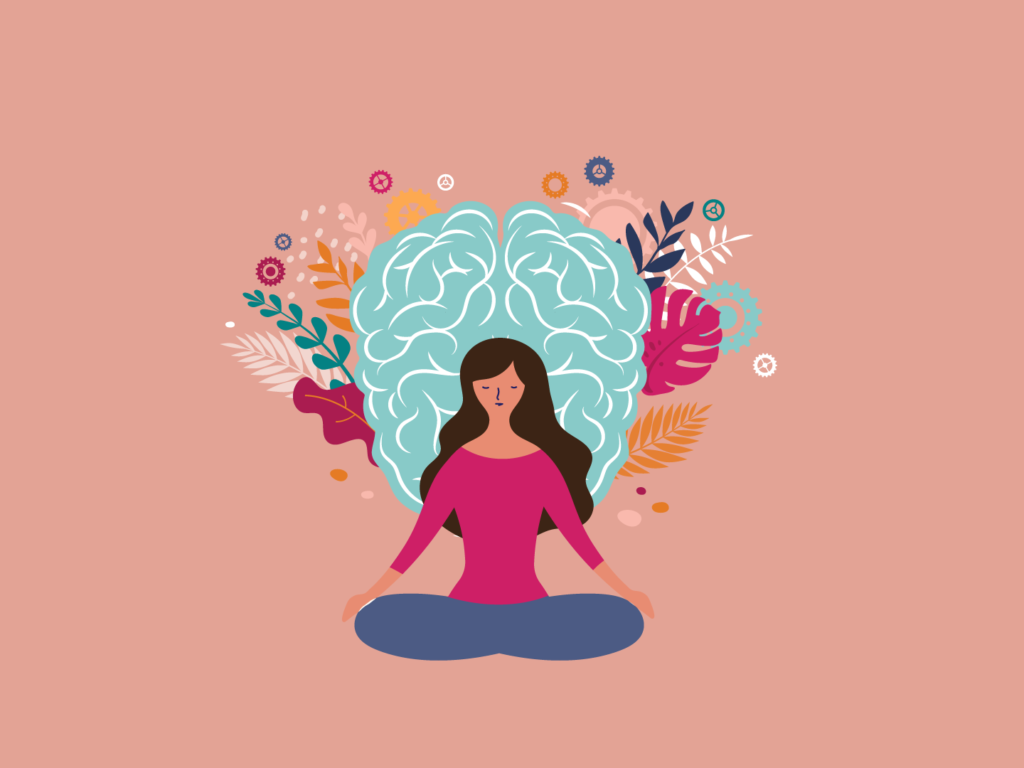Do you find yourself getting angry often? Do you struggle to control your emotions, and sometimes lash out at the people around you? If so, mindfulness for anger may be the solution that you are looking for. In this blog post, we will discuss what mindfulness is, and how it can help you healthily manage your anger. We will also provide some tips on how to start incorporating mindfulness into your daily life.
Contents
Defining Anger
Before we can discuss how mindfulness can help with anger, it is important to first understand what anger is. Anger is a normal human emotion that everyone experiences from time to time. It is a natural response to feeling threatened, frustrated, or hurt.
When you are faced with a challenging situation, your body releases adrenaline and cortisol, which prepare you to fight or take flight. This “fight or flight” response is designed to protect us from danger, but in today’s world, we are often faced with situations that do not warrant such a reaction. For example, you may get angry when someone cuts you off in traffic, or when your boss yells at you for something that was not your fault. In these situations, our bodies are still releasing adrenaline and cortisol, but we are not in danger. This can lead to feelings of frustration, which can then escalate into anger.
Defining Mindfulness
Now that we have a better understanding of what anger is, let’s discuss mindfulness. Mindfulness is the practice of being present in the moment and paying attention to your thoughts, emotions, and sensations without judgment. It is about accepting yourself and your experiences just as they are. When you are mindful, you are not trying to change anything or make anything go away. You are simply observing and acknowledging what is happening within you in the present moment.
It is important to note that mindfulness is not about suppressing your emotions or ignoring your problems. On the contrary, it is about facing them head-on and healthily dealing with them.
Mindfulness for Anger

So how can mindfulness help with anger? When you are mindful of your anger, you can see it for what it is: an emotion that is being caused by thoughts or situations. This allows you to step back from the emotion and observe it without getting caught up in it. As a result, you are less likely to act out angrily. Instead, you are more likely to be able to deal with the situation in a constructive way. For example, if someone cuts you off in traffic, you may be able to use mindfulness to observe the anger that you are feeling, and then choose to respond in a way that is not harmful or destructive.
Benefits
There are many benefits to practicing mindfulness. These include:
- increased self-awareness
- decreased stress and anxiety
- improved mental and physical health
- reduced stress
- increased focus and concentration
- better sleep
- improved relationships
- lower blood pressure
- improved emotional regulation
Incorporating Mindfulness into Your Life
If you are interested in incorporating mindfulness into your life, there are a few things that you can do to get started.
- First, make sure to set aside some time each day for mindfulness. You can start with just a few minutes, and gradually increase the amount of time that you practice. It is also important to find a comfortable place to sit or lie down where you will not be interrupted.
- Once you are settled, close your eyes and focus on your breath. Simply observe the sensation of breathing in and out. If your mind begins to wander, gently bring it back to your breath.
- You may also want to focus on a specific body part, such as your hands or feet. Notice the sensations that you feel in that area of your body.
Tips For Effective Mindfulness

Mindfulness can be a helpful tool for managing anger because it allows you to step back from your thoughts and observe them without getting caught up in them. If you are interested in incorporating mindfulness into your life, there are a few things that you can do to get started.
- Find a comfortable place to sit or lie down. You can also practice mindfulness while walking, but it may be helpful to start in a quiet place where you can focus on your breath.
- Keep distractions at a minimum. Once you are settled, close your eyes and focus on your breath. Simply observe the sensation of breathing in and out. If your mind begins to wander, gently bring it back to your breath.
- See how long you can remain focused before thoughts start to creep back in again. It takes practice but eventually with consistency, it will get easier to control those angry impulses by being more mindful.
- Allow your thoughts to come and go without judgment. If you find yourself getting caught up in a thought, gently bring your attention back to your breath.
- Don’t try to meditate for hours each day. Start with a few minutes, and gradually increase the amount of time you spend practicing.
- Try not to get discouraged and give yourself some grace- we all have moments where we struggle to keep our cool. The goal is progress, not perfection!
Mindfulness is a journey, not a destination. Wherever you are on that journey, know that you are doing your best. And that is always good enough.”
Alternative Methods

If mindfulness doesn’t seem like the right fit for you, there are other methods that can help you healthily deal with anger. Some other options include:
•talking to a therapist or counselor: a professional can help you understand your anger and develop healthy coping mechanisms
•exercise: physical activity can help to release built-up tension and frustration
•spending time with friends or family: social support can be very helpful when dealing with difficult emotions
•attending an anger management class or group: these classes can provide you with tools and support for managing your anger
•reading self-help books or articles on managing anger: education can be very helpful in understanding and managing your anger
•practicing relaxation techniques such as yoga or meditation: these activities can help to calm and focus your mind
•journaling about your thoughts and feelings related to anger: this can help you to process your anger in a constructive way
If mindfulness doesn’t seem like the right fit for you, other methods can help you healthily deal with anger. No matter what method you choose, the most important thing is that you find something that works for you. Experiment until you find a strategy that helps you to feel better and more in control. And remember, it’s okay to ask for help! If you are struggling to cope with your anger, there is no shame in seeking professional assistance. Anger is a normal emotion, but it can be very destructive if it isn’t manageable. With the right tools, however, it is possible to tame the beast and live a happier, more peaceful life.
Conclusion
No matter what method you choose, the most important thing is that you find something that works for you. Dealing with anger is not always easy, but it is possible to develop healthy coping mechanisms that will help you to manage your emotions healthily. With consistency and practice, you can learn to control your anger instead of letting it control you.
For more information, please contact MantraCare. Anger is a powerful emotion that is experienced by every individual at some point in their lives. If you have any queries regarding Online Anger Counseling experienced therapists at MantraCare can help: Book a trial Online therapy session


